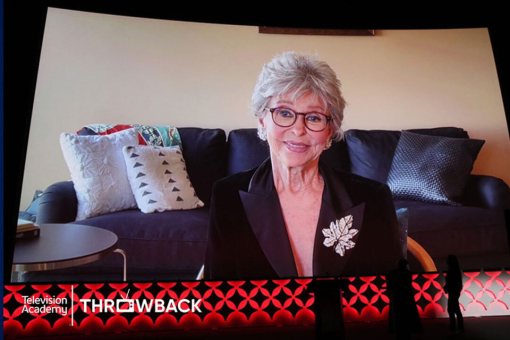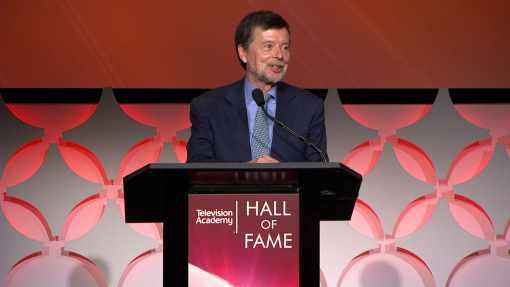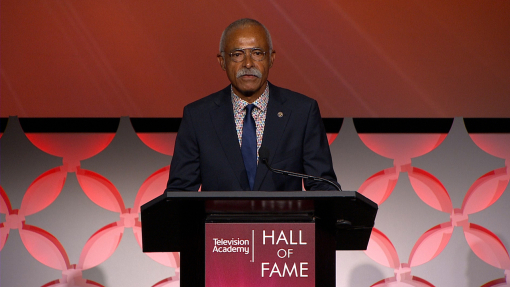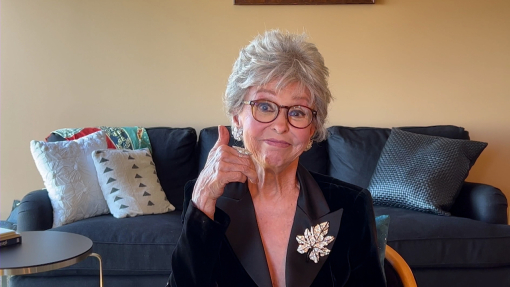In 1985, Capital Cities Communications took Wall Street by surprise. The medium-sized broadcasting and publishing company pulled off the biggest media merger in U.S. history at the time, purchasing the American Broadcasting Company, a business four times its size, for $3.5 billion. The deal also cemented the reputations of its two top executives, chairman/CEO Thomas S. Murphy and president/COO Daniel B. Burke, already widely known in the industry for their effective partnership and rational managing styles.
“Some people said, ‘Tom made the deals and Dan made them work,’” says Patti Matson, the former senior vice-president of communications for Capital Cities/ABC Inc. “But that’s too simplistic,” she adds, referring to Murphy’s uncanny business acumen for acquiring radio and television stations and publishing businesses over the course of 30 years, as he leveraged Cap Cities into becoming the largest ABC affiliate at the time of its merger with ABC. Burke, meanwhile, focused on the day-to-day operations with “a mind-numbing attention to detail,” says Matson.
They were such a potent team that, 10 years later, they engineered the sale of Cap Cities/ABC Inc. to the Walt Disney Company for approximately $19 billion. Burke had retired by then, having served as CEO for his last four years, from 1990 to 1994. Murphy, who served as the chief executive for 24 years before relinquishing the title to Burke in 1990, retook the reins upon Burke’s departure until he subsequently sold the business to Disney in 1996. Even with Burke in retirement, Murphy consulted with him on crafting the capstone deal, just as they had done in tandem for 33 years.
“Tom and Dan had complementary skills and strengths, and they trusted each other’s judgment implicitly,” says Robert A. Iger, the current President/CEO of the Walt Disney Co. At the same time, the two men shared very similar views about business. They believed in putting the interests of the shareholders first. And they always ran a lean, decentralized operation, entrusting their managers with a great deal of autonomy. “Together,” says Mr. Iger, “they created a management philosophy based on financial discipline, nimble and decisive management, and accountability.”
Tom Murphy entered the broadcasting industry first. After graduating from Harvard Business School in 1949, someone asked him what he’d like to do. “I said I’d like to own something some day,” says Murphy. “I don’t know why I felt that way, but I thought I could be good at that.”
He got his opportunity in 1954. Murphy was approached by a Harvard alumnus, Frank M. Smith, who invited him to join his fledgling UHF television and AM radio station in Albany, NY — a move Smith initially considered “a crapshoot.”
In fact, it was a chance in a lifetime. “It was good timing. It was a good break,” says Murphy, commending his luck at entering an industry that would soon be exploding. He threw himself into the job of manager and salesman. Using what he describes as common sense, he’d size up which stations offered the most earning potential and go after them, hat in hand.
“For years he got on a plane and got to know the owners of stations,” says Matson, explaining how he respectfully approached even those who said they didn’t want to sell. “He never closed the door on anyone whose property he wanted.”
Early on, Capital Cities almost went bankrupt after taking over a station that was losing money. But it recovered, and from then on Murphy always ran his operations using the fewest employees necessary.
The business had already acquired five TV stations and six or seven radio stations when Frank Smith died prematurely. At that point, Murphy says he was fortunate to invite Dan Burke, another Harvard alumnus (and the brother of his former roommate, John Burke, who became chairman/CEO of Johnson & Johnson), to manage the operations while he continued to craft deals. Although Murphy was presumably the boss of Burke, “That quickly died, and we became partners,” he says.
Before joining Cap Cities, Burke had been working in the new products division of General Foods. His wife, Bunny, recalls that he’d bring Jell-O products home and test them on her. “He figured if it worked on me, it would sell.” When Murphy approached him, he had never set foot in a television station before. And initially, recalls Bunny, “Dan wondered if Tom should send him memos.” However, she says, “Tom basically said, ‘You’re on your own.’”
She says that her husband got a jolt on his first day of work. The station was showing a movie when he heard the announcer say, “You will now see the beginning of the movie to which you already saw the end.” Bunny says, “He went running down to talk to the guy and learned that they’d got the reels mixed up.”
That probably never happened again. Nicknamed “The Cardinal” for his strict standards, Burke was especially noted for picking talented managers whom he motivated to work to the best of their abilities. “He always said, you’re only as good as the people working for you,” says Bunny.
Meanwhile, the two men continued to engineer deals, spinning acquisitions off when necessary. Early on, FCC regulations limited ownership of more than five VHF stations. So in 1968 they ventured into the publishing business, buying trade publications and then newspapers. They bought the Fort Worth Star Telegram, the Kansas City Star and others. By the time they set their sights on ABC, the FCC’s standards had changed and they owned eight percent of the ABC affiliates including Houston, Buffalo, Hartford, New Haven and Philadelphia.
In an interview he did several years ago with his alma mater, the Harvard Business School, Murphy described his meeting with ABC’s then-owner Leonard H. Goldenson: “I went to him and I said, “Leonard, I’d like to see if we can make a deal together.” I thought he’d throw me out of the 39th floor, but he didn’t. As a matter of fact, we very quickly made a deal. Leonard said one thing to me: “Tom, you’ll need a 400-pound gorilla to prevent someone from coming in and trying to take both of us over.” He said that because I didn’t have any one huge stockholder at that stage. As a result, I got mixed up with my pal Warren Buffett.”
Murphy had known Buffett for 15 years and convinced him to put $500 million into the deal. This gave Buffett 18 percent ownership of the company, which he placed in Murphy’s hands. In the same interview, Murphy said: “I never would have thought of asking [Warren] for it, but he told me to vote his share of the stock. He put me in absolute control of the company. He showed great confidence in me and my partner Dan Burke.”
In merging with ABC, the company acquired a great deal of cable assets as well. These included a large stake in Lifetime, Arts & Entertainment, and ESPN, which was initially losing $40 million a year. Under the new management, ESPN grew to be hugely successful. Overall, Capital Cities/ABC’s stock appreciation was so great that, in subsequent years, a joke went around (initiated by Buffett) that the decision of whether to participate in the employee stock-purchase plan was equivalent to an IQ test.
Murphy and Burke also presided over a smooth transition. Matson says that Burke met with each ABC department head and asked them to determine where to cut costs, encouraging them to think about their department as if they were managing it from the get-go. “They enlisted us, one by one, as soldiers in their army. So instead of resisting change, we went willingly.” She adds, “It was quite remarkable.”
The two could accept honest mistakes, but they let it be known that dishonoring the company’s name would not be tolerated. “Importantly, they brought a strong ethical foundation to their business model,” says Iger, who was one of many in the industry whose abilities and leadership potential they recognized. “No matter how busy they were, Tom and Dan always found time to teach, guide and inspire us,” says Iger. “We all learned much from each of them, and we continue to do so."
They also believed in preserving broadcasting’s “public trust” responsibilities. ABC’s news department, under Roone Arledge, became top-rated, highlighted by such successes as 20/20 and Nightline, and the hiring of David Brinkley from NBC and Diane Sawyer from CBS. “We had a quality operation,” says Murphy, who was initially concerned about running a network that presented such racy fare as soap operas. Cap Cities had mainly aired news, weather and local shows. He went to his monsignor, who expressed confidence in his abilities to do a good job. “It was fun to be in the network business,” says Murphy. “I wouldn’t say I was a creative force. But I still think I know what makes me cry and what makes me laugh.”
He and Burke were also quite conscious of not wasting time and energy. For years, they had offices across the hall from each other. “They didn’t call each other, they dropped by to discuss things,” says Matson. If one went to a function, “the other didn’t,” she says, describing Murphy as outgoing and charismatic, and Burke as having a biting wit and a propensity to eat in the cafeteria with the rest of the employees. “They both wanted balance in their lives. They both wanted to be home with their families at night,” she says, noting that both also continue to donate substantial time to various charitable boards.
Despite their enormous successes, neither took themselves too seriously. The day after the Cap Cities/ABC merger was finalized, Matson dropped a stack of press ravings on Murphy’s desk. He was engaged in a phone conversation. As she looked back, she saw him examine the top sheet. Then, in one fell swoop, he brushed all the news clippings into a trashcan. “That’s how little he cared.”
When asked about those press accolades, he still shrugs them off. “That’s a one-week wonder,” he says modestly. Looking back, he says, “I loved the business I was in, and I loved going to work every morning.” It was his good fortune to enter a field charged with possibility. He adds, “If it had been the railroad business, it would not have been as much fun.”
This tribute originally appeared in the Television Academy Hall of Fame program celebrating Thomas S. Murphy and Daniel B. Burke's induction in 2008.










